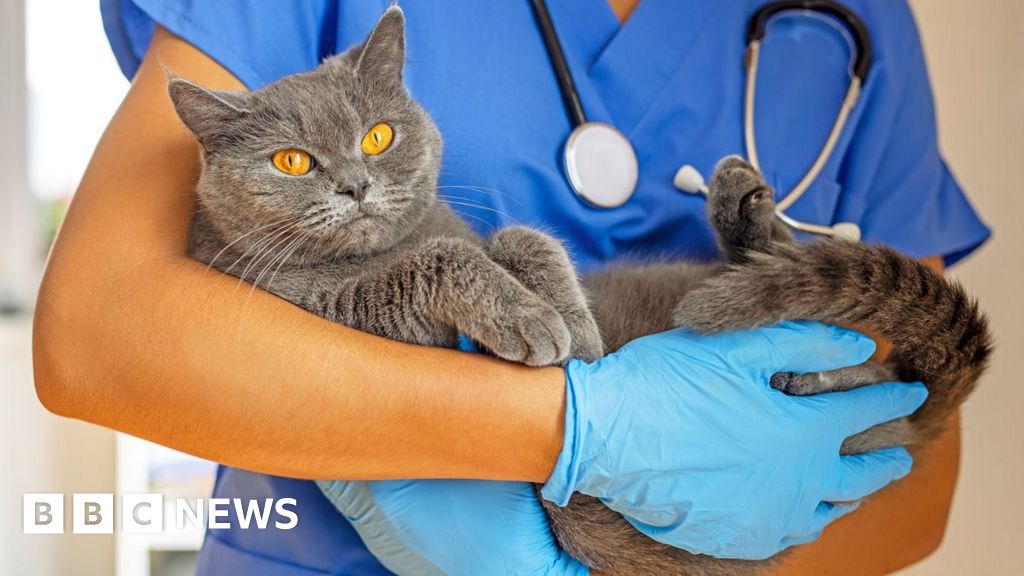Pressure on Vets to Generate Revenue Raises Concerns Over Animal Welfare

In recent revelations, many veterinarians in the UK have come forward to express their discontent regarding the increasing pressure to generate income. According to discussions with multiple veterinary professionals under the banner of IVC Evidensia, one of the countrys largest pet care providers, the focus seems to be shifting from animal welfare to financial performance metrics. The sentiment among these vets is exemplified by 'Adam', a pseudonym used by a practicing veterinarian, who stated, "Your worth is only how much income you bring." This statement encapsulates the frustrations of many who feel their financial contributions are being prioritized over their professional capabilities and patient care.
IVC Evidensia, which boasts a network of over 900 veterinary surgeries across the UK, is currently under scrutiny for its operational practices. In interviews with seven anonymous vets employed by the company, it was revealed that they are subjected to consistent monitoring and are required to meet specific revenue targets. This data was gathered as part of a recent survey conducted by the British Veterinary Union (BVU), with findings that have been exclusively shared with the investigative program, File on 4.
The issue of corporate influence in veterinary medicine seems to be intensifying. In 2013, a mere 10% of veterinary practices in the UK were under corporate ownership. Fast forward to 2023, and that figure has soared to 60%. This shift has not only changed the landscape of veterinary care but has also had financial implications for pet owners. Data from the Competition and Markets Authority (CMA) indicates that veterinary bills have risen by over 60% between 2015 and 2023, a figure that far exceeds the rate of inflation and the increases seen in veterinary salaries over the same period. The CMA is currently investigating the implications of corporate ownership in the veterinary sector, particularly concerning pricing strategies and profit margins, with preliminary recommendations expected by July.
As the conversation around escalating veterinary costs continues, it is essential to consider contributing factors, including technological advancements and evolving expectations from pet owners. IVC, like many of its corporate counterparts, closely monitors the average revenue generated per animal across their veterinary consultations. Adam indicated that he regularly receives emails questioning the low average transaction values he is generating and is prompted to consider more profitable procedures for his consultations. He explained the psychological toll this pressure has taken on him, stating, "I felt chastised for not bringing in enough money." The competitive atmosphere is exacerbated by company-wide comparisons that leave some veterinarians feeling inadequate when their results fall below those of their peers.
The corporate culture within IVC appears to prioritize specific procedural targets, framed as "clinical challenge milestones," which are intended to enhance the quality of care provided to pets. IVC maintains that these targets are not financially motivated but rather focus on improving clinical outcomes for animals. Nevertheless, some veterinarians argue that these goals interfere with their ability to make appropriate clinical decisions based on the financial constraints of pet owners. This sentiment was echoed by a vet who works for another IVC-owned entity, Vets Now, which is known for providing emergency care outside of standard hours. She remarked that the insistence on meeting specific targets complicates her ability to recommend treatments that align with the pet owners' budgetary realities.
In a shocking revelation, a vet from the out-of-hours service explained that the companys call center regularly schedules emergency appointments for conditions that might not require immediate attention, costing pet owners substantial amounts of money. For example, she estimated that between 30%-50% of the cases could have been addressed during regular hours without any adverse effects on the pets health. This situation raises questions regarding the ethical implications of the corporate approach to veterinary care. The call center, staffed by non-clinical personnel, operates under guidelines that encourage booking emergency slots even when the situation may not warrant it. The vet lamented that the high volume of non-urgent appointments is straining their ability to care for genuinely urgent cases.
The pressure exerted on veterinary staff extends beyond appointment scheduling. A specialist veterinarian at one of IVCs referral centers disclosed that he had been instructed to provide estimated costs for only the first 24 hours of a pet's treatment, instead of a more comprehensive long-term estimate. He expressed concern that this practice misleads pet owners regarding the true cost of care, as they may initially perceive a lower upfront cost only to encounter escalating expenses shortly thereafter. This has led to feelings of dishonesty, with the vet noting, "there is pressure being applied" to conform to these guidelines. IVC has denied any allegations of pressuring veterinarians to withhold pricing information, arguing that due to the nature of veterinary care, estimates beyond the immediate time frame could be misleading.
Recent findings from a BVU survey, which included responses from 275 veterinary professionals, highlighted a troubling trend: nearly 40% of nurses and just over 17% of veterinarians acknowledged that the monitoring of revenue targets influenced their clinical decision-making. The BVU pointed out that since the advent of corporate ownership in the veterinary sector, particularly after the 1999 legislative changes allowing non-veterinarians to own practices, the focus has increasingly shifted towards profit rather than patient care. One of the interviewed vets articulated a growing concern that the primary ambition of IVC and similar corporations is to maximize returns for their venture capitalists at the expense of animal welfare.











